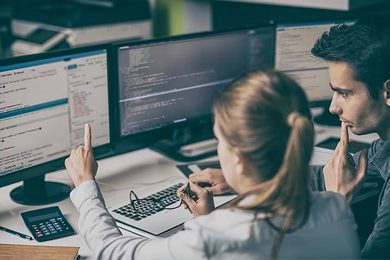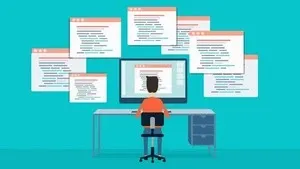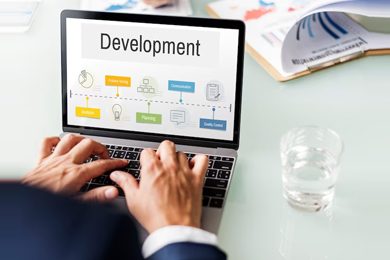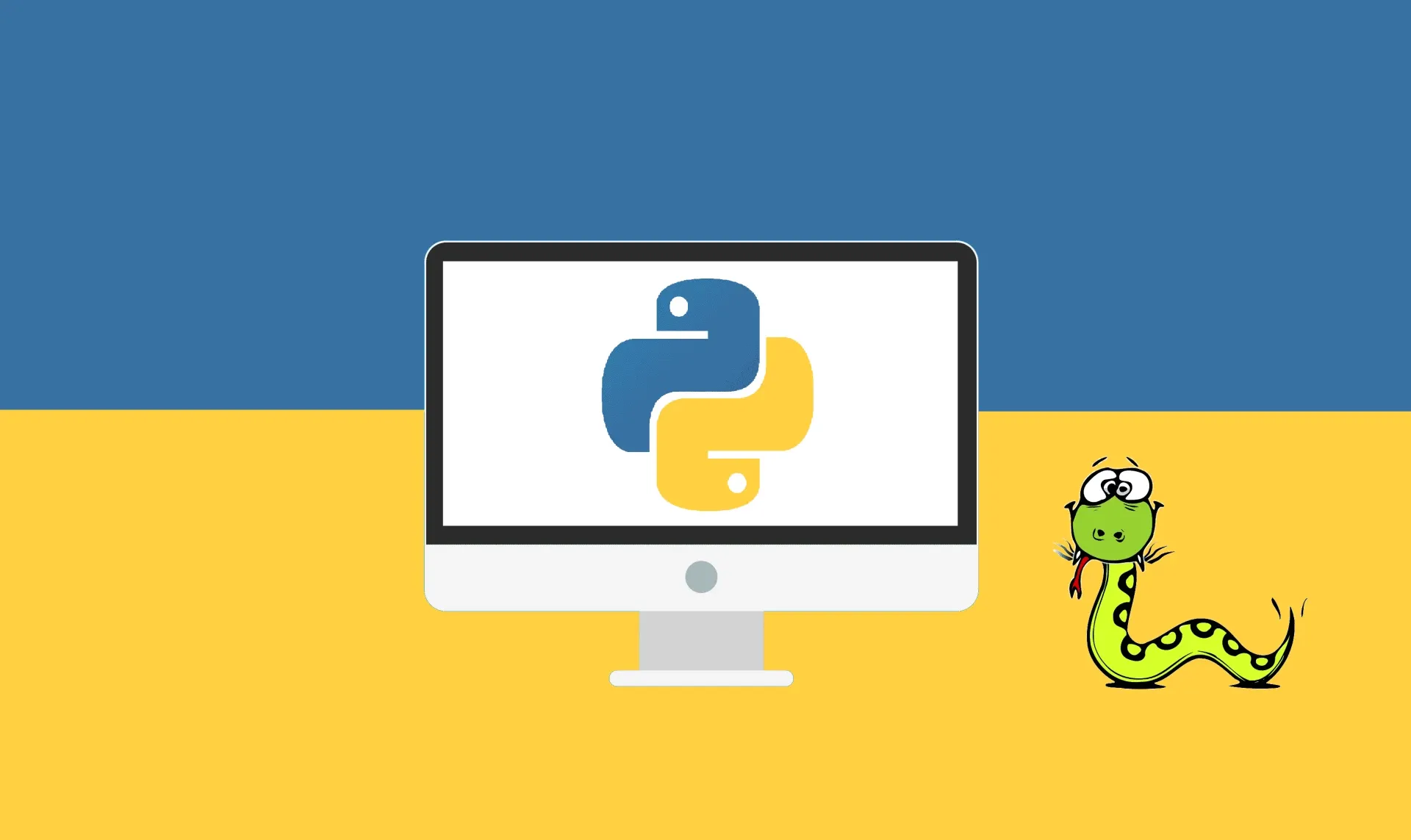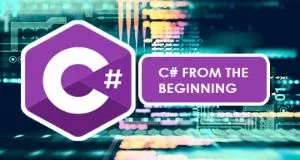This plan includes
- Limited free courses access
- Play & Pause Course Videos
- Video Recorded Lectures
- Learn on Mobile/PC/Tablet
- Quizzes and Real Projects
- Lifetime Course Certificate
- Email & Chat Support
What you'll learn?
- Understand the basics of Pandas, its data structures, and how to install it.
- Work with different types of data structures in Pandas.
- Use descriptive and inferential statistics methods to analyze data.
- Apply element-wise, row or column-wise, and table-wise function application on data.
- Reindex, sort, and iterate through data using Pandas.
- Use string methods for data cleaning and manipulation.
- Customize display options and data types in Pandas.
- Perform indexing and selecting operations based on labels, integers, or Boolean values.
- Use window functions such as rolling, expanding, and ewm for data analysis.
- Group data based on single or multiple columns, apply aggregation functions, and filter or transform data.
- Work with categorical data, perform methods such as reorder, remove, add, and rename categories, and visualize categorical data using Pandas.
- Visualize data using different types of plots such as line, bar, histogram, scatter, box, area, and heatmap.
- Read and write data in different formats such as CSV, Excel, and JSON using Pandas.
- Work with sparse data and understand its features.
Course Overview
Pre-requisites
- You should have basic knowledge of Python programming with beginner experince
- You did not have to buy extra software or course
Target Audience
- Data Analysts: If you work with data and need to perform tasks such as data cleaning, data transformation, data exploration, and data visualization, learning pandas can greatly enhance your data analysis skills.
- Data Engineers: Data engineers work on building data pipelines and data infrastructure. Understanding pandas can help in the transformation and preparation of data within the pipeline.
- Researchers and Academics: Researchers and academics from various disciplines who work with data can benefit from pandas. It enables efficient data manipulation and analysis, making it easier to extract insights from research data.
- Python Developers: If you are a Python developer who wants to expand your skillset in data manipulation and analysis, learning pandas can be highly advantageous. It allows you to work with structured data effectively and perform common data tasks efficiently.
- Data Scientists: As a data scientist, you often need to preprocess and analyze large datasets. pandas offers powerful tools for handling and manipulating data, making it a valuable asset for data scientists.
Curriculum 119 Lectures 09:33:40
Section 1 : Chapter 01
- Lecture 2 :
- What is Pandas
- Lecture 3 :
- Where we can use Pandas
- Lecture 4 :
- What we can do with Pandas
- Lecture 5 :
- Pandas Basic Program
- Lecture 6 :
- Pandas Installation
Section 2 : Chapter 02
- Lecture 1 :
- Pandas Chapter 02 Outlines
- Lecture 2 :
- Series Data Structure
- Lecture 3 :
- DataFrame Data Strcuture
- Lecture 4 :
- Panel Data Structure
Section 3 : Chapter 03
- Lecture 1 :
- Chapter 03 Outlines for Pandas
- Lecture 2 :
- Series Creation with 5 Methods
- Lecture 3 :
- Indexing with Series
- Lecture 4 :
- Slicing with Series
- Lecture 5 :
- Arithmetics with Series
- Lecture 6 :
- Comparision with Series
- Lecture 7 :
- Aggregation with Series
- Lecture 8 :
- Filtering with Series
- Lecture 9 :
- All Attribues of Series
- Lecture 10 :
- head method with Series
- Lecture 11 :
- tail method with Series
- Lecture 12 :
- describe method with Series
- Lecture 13 :
- info method with Series
- Lecture 14 :
- mean method with Series
- Lecture 15 :
- sum method with Series
- Lecture 16 :
- unique method with Series
- Lecture 17 :
- value_counts method with Series
- Lecture 18 :
- sort_values method with Series
- Lecture 19 :
- apply method with Series
- Lecture 20 :
- fillna method with Series
- Lecture 21 :
- drop method with Series
- Lecture 22 :
- concat method with Series
Section 4 : Chapter 04
- Lecture 1 :
- Chapter 04 Outlines for Pandas
- Lecture 2 :
- Methods to create DataFrame
- Lecture 3 :
- Select Add and Delete Column
- Lecture 4 :
- Select Add Delete Row
- Lecture 5 :
- Indexing and Slicing in DataFrame
- Lecture 6 :
- Arithmetic Operation with DataFrame
- Lecture 7 :
- Comparision Operations on DataFrame
- Lecture 8 :
- Aggregation with DataFrame
- Lecture 9 :
- Filtering in DataFrame
- Lecture 10 :
- Missing Data Handling in DataFrame
- Lecture 11 :
- Joining Method with DataFrame
- Lecture 12 :
- Sorting in DataFrame
- Lecture 13 :
- Attributes for DataFrame
- Lecture 14 :
- Head and Tail method in DF
- Lecture 15 :
- Describe and Info method with DF
- Lecture 16 :
- sort_values method with DF
- Lecture 17 :
- dropna Method with DF
- Lecture 18 :
- fillna and merge method with DF
- Lecture 19 :
- apply method with DF
- Lecture 20 :
- Panel in Pandas
Section 5 : Chapter 05
- Lecture 1 :
- Chapter 05 Outlines
- Lecture 2 :
- Descriptive Statistics in Pandas
- Lecture 3 :
- Descriptive Methods in Pandas
Section 6 : Chapter 06
- Lecture 1 :
- Pandas Chapter 06 Outlines
- Lecture 2 :
- Function Application in Pandas
- Lecture 3 :
- Element Wise Application
- Lecture 4 :
- Row or Column Wise Application
- Lecture 5 :
- Table wise Application
Section 7 : Chapter 07
- Lecture 1 :
- Pandas Chapter 07 Outlines
- Lecture 2 :
- Reindexing in Pandas
- Lecture 3 :
- Iteration with items method
- Lecture 4 :
- Iteration with iterrows method
- Lecture 5 :
- Iteration with itertuples method
- Lecture 6 :
- Iteration in Pandas
- Lecture 7 :
- Sort Values in Pandas
- Lecture 8 :
- Sort Index in Pandas
- Lecture 9 :
- nlargest and nsmallest in Pandas
Section 8 : Chapter 08
- Lecture 1 :
- Pandas Chapter 08 Outlines
- Lecture 2 :
- lower and upper method
- Lecture 3 :
- title and capatilize method
- Lecture 4 :
- swapecase method in Pandas
- Lecture 5 :
- strip Istrip rstrip in pandas
- Lecture 6 :
- join method in Pandas
- Lecture 7 :
- replace method in Pandas
- Lecture 8 :
- contains method in Pandas
- Lecture 9 :
- startswith and endswith in Pandas
- Lecture 10 :
- find and find in Pandas
- Lecture 11 :
- count and len Method in Pandas
Section 9 : Chapter 09
- Lecture 1 :
- Pandas Chapter 09 Outline
- Lecture 2 :
- Display Option in Pandas
- Lecture 3 :
- Customizing Data Types
- Lecture 4 :
- Data Cleaning
- Lecture 5 :
- Label integer and boolean based indexing
- Lecture 6 :
- Query Method in Pandas
Section 10 : Chapter 10
- Lecture 1 :
- Pandas Chapter 10 Outline
- Lecture 2 :
- Rolling Window in Pandas
- Lecture 3 :
- Rolling window functions in Pandas
- Lecture 4 :
- Expending Window in Pandas
Section 11 : Chapter 11
- Lecture 1 :
- Pandas Chapter 11 Outline
- Lecture 2 :
- groupby Method in Pandas
- Lecture 3 :
- Aggregation on groupby in Pandas
- Lecture 4 :
- Transformation on groupby in Pandas
- Lecture 5 :
- Filteration in Pandas
- Lecture 6 :
- Transformation Example on groupby
- Lecture 7 :
- Aggregation Example with groupby
Section 12 : Chapter 12
- Lecture 1 :
- Pandas Outline Chapter 12
- Lecture 2 :
- Pandas Categorical Data Introduction
- Lecture 3 :
- Pandas Categorical Data Example
Section 13 : Chapter 13
- Lecture 1 :
- Pandas Chapter 13 Outline
- Lecture 2 :
- Lineplot in Pandas
- Lecture 3 :
- Barplot in Pandas
- Lecture 4 :
- Scatter plot in Pandas
- Lecture 5 :
- Boxplot in Pandas
- Lecture 6 :
- Area plot in Pandas
- Lecture 7 :
- Density Plot in Pandas
Section 14 : Chapter 14
- Lecture 1 :
- Pandas Chapter 14 Outline
- Lecture 2 :
- Reading CSV File with Pandas
- Lecture 3 :
- Writing CSV file with Pandas
- Lecture 4 :
- Reading Excel file with Pandas
- Lecture 5 :
- Writing Excel file with Pandas
- Lecture 6 :
- Reading JSON file with Pandas
- Lecture 7 :
- Writing JSON file with Pandas
Section 15 : Chapter 15
- Lecture 1 :
- Pandas Chapter 15
- Lecture 2 :
- to_datetime in Pandas
- Lecture 3 :
- Date Range in Numpy
- Lecture 4 :
- strftime in Numpy
- Lecture 5 :
- Timestamp in Numpy
Our learners work at
Frequently Asked Questions
How do i access the course after purchase?
It's simple. When you sign up, you'll immediately have unlimited viewing of thousands of expert courses, paths to guide your learning, tools to measure your skills and hands-on resources like exercise files. There’s no limit on what you can learn and you can cancel at any time.Are these video based online self-learning courses?
Yes. All of the courses comes with online video based lectures created by certified instructors. Instructors have crafted these courses with a blend of high quality interactive videos, lectures, quizzes & real world projects to give you an indepth knowledge about the topic.Can i play & pause the course as per my convenience?
Yes absolutely & thats one of the advantage of self-paced courses. You can anytime pause or resume the course & come back & forth from one lecture to another lecture, play the videos mulitple times & so on.How do i contact the instructor for any doubts or questions?
Most of these courses have general questions & answers already covered within the course lectures. However, if you need any further help from the instructor, you can use the inbuilt Chat with Instructor option to send a message to an instructor & they will reply you within 24 hours. You can ask as many questions as you want.Do i need a pc to access the course or can i do it on mobile & tablet as well?
Brilliant question? Isn't it? You can access the courses on any device like PC, Mobile, Tablet & even on a smart tv. For mobile & a tablet you can download the Learnfly android or an iOS app. If mobile app is not available in your country, you can access the course directly by visting our website, its fully mobile friendly.Do i get any certificate for the courses?
Yes. Once you complete any course on our platform along with provided assessments by the instructor, you will be eligble to get certificate of course completion.
For how long can i access my course on the platform?
You require an active subscription to access courses on our platform. If your subscription is active, you can access any course on our platform with no restrictions.Is there any free trial?
Currently, we do not offer any free trial.Can i cancel anytime?
Yes, you can cancel your subscription at any time. Your subscription will auto-renew until you cancel, but why would you want to?
Instructor

509599 Course Views
29 Courses



 Tech & IT
Tech & IT
 Business
Business
 Coding & Developer
Coding & Developer
 Finance & Accounting
Finance & Accounting
 Academics
Academics
 Office Applications
Office Applications
 Art & Design
Art & Design
 Marketing
Marketing
 Health & Wellness
Health & Wellness
 Sounds & Music
Sounds & Music
 Lifestyle
Lifestyle
 Photography
Photography




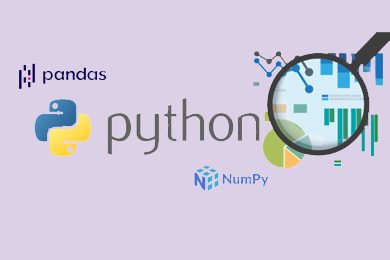


.jpg?crop=smart&width=600&height=400)




